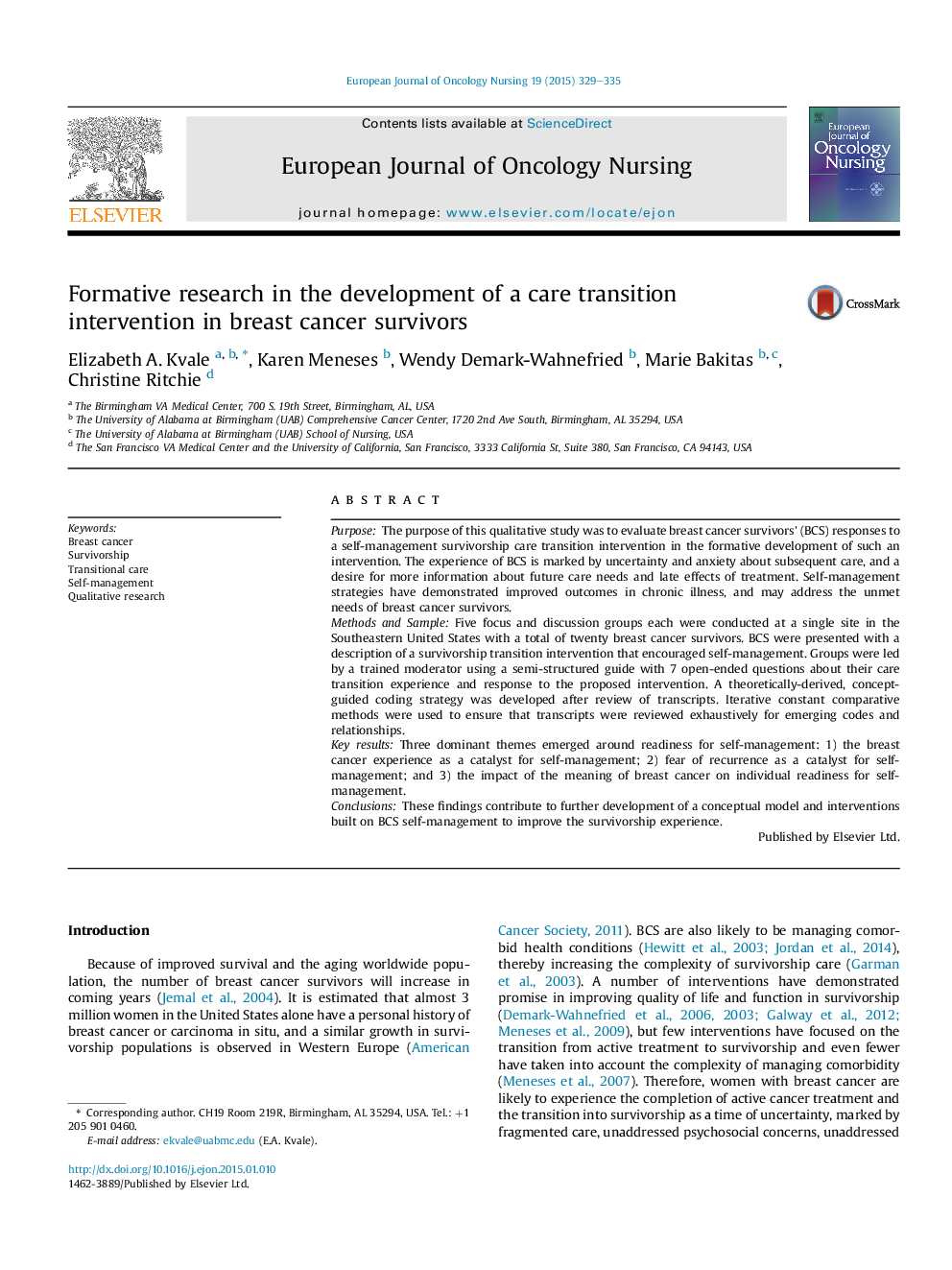| Article ID | Journal | Published Year | Pages | File Type |
|---|---|---|---|---|
| 2649563 | European Journal of Oncology Nursing | 2015 | 7 Pages |
PurposeThe purpose of this qualitative study was to evaluate breast cancer survivors' (BCS) responses to a self-management survivorship care transition intervention in the formative development of such an intervention. The experience of BCS is marked by uncertainty and anxiety about subsequent care, and a desire for more information about future care needs and late effects of treatment. Self-management strategies have demonstrated improved outcomes in chronic illness, and may address the unmet needs of breast cancer survivors.Methods and SampleFive focus and discussion groups each were conducted at a single site in the Southeastern United States with a total of twenty breast cancer survivors. BCS were presented with a description of a survivorship transition intervention that encouraged self-management. Groups were led by a trained moderator using a semi-structured guide with 7 open-ended questions about their care transition experience and response to the proposed intervention. A theoretically-derived, concept-guided coding strategy was developed after review of transcripts. Iterative constant comparative methods were used to ensure that transcripts were reviewed exhaustively for emerging codes and relationships.Key resultsThree dominant themes emerged around readiness for self-management: 1) the breast cancer experience as a catalyst for self-management; 2) fear of recurrence as a catalyst for self-management; and 3) the impact of the meaning of breast cancer on individual readiness for self-management.ConclusionsThese findings contribute to further development of a conceptual model and interventions built on BCS self-management to improve the survivorship experience.
